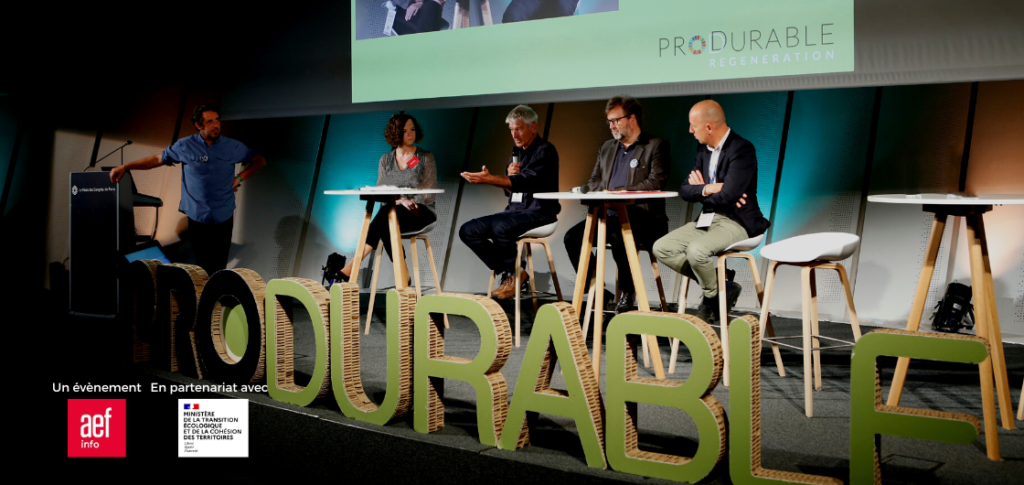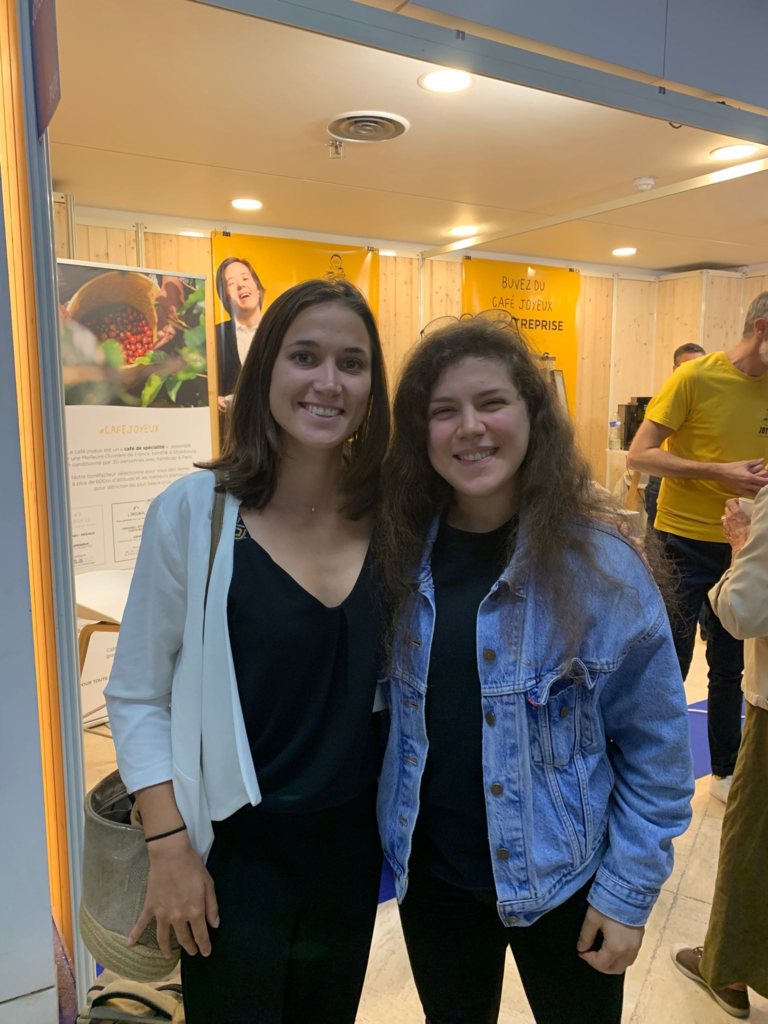
The 2022 edition of Produrable took place on 13th and 14th of September 2022 at the Palais des Congrès in Paris. Our team took part to the event.

What is Produrable?
Produrable is an annual European event where best practices, ESG solutions, and sustainable economy experts are brought together to discuss and ensure concrete and widespread implementation of measures to promote a sustainable economy.
This event marks a turning point in the positive transformation of society. Companies, and the public sector have realized the crucial need to shift their model together.
Takeaways we would like to highlight from this event:
- The importance of federating economic actors to support Sustainable Economic Development
As the world needs to cut its global emissions by 7.6 percent every year for the next decade to meet the 1.5°C Paris Target, change will never happen alone. The old idea that only a few could have a drastic impact is outdated. Everyone, from the private sector to the public, and from all ages and generations, must rethink collectively and not individually. Society desperately needs a new form of collaboration and sharing through a typical ecosystem of mindsets and actions. We must not forget the vital importance of citizen participation, as citizens are at the heart of any business activity and consumption.
- The need to promote best practices that put Sustainable Development at the heart of organizations’ strategy
Every aspect of society is being challenged. The “old” way of doing business is no longer doing business as usual. We need to rethink business and how we do it. All sectors must now find appropriate solutions to the current context.
Performance is being redefined. What is performance? How should we measure it?
It is about redefining asset allocation and financial performance for the financial sector. With the emergence of impact funds and SRI investments, these companies now need to care about the human, social and environmental impacts of their investments. A few years later, it would’ve seemed like a utopian dream.
For example, the European Commission unraveled its strategy for a financial system that supports the EU’s climate and sustainable development agenda. Several measures have already taken place with the Commission’s Action Plan for a greener and cleaner economy.
The first one is incorporating sustainability in prudential requirements. The Commission will explore the feasibility of recalibrating capital requirements for banks (the so-called “green supporting factor”) for sustainable investments when it is justified from a risk perspective while ensuring that financial stability is safeguarded.
Another project is enhancing transparency in corporate reporting: the EU proposes to “revise the guidelines on non-financial information to further align them with the recommendations of the Financial Stability Board’s Task Force on Climate-related Financial Disclosures (TCFD).”
This action plan aims to put extra-financial disclosures at the same level as financial reporting in the long run.
- Encourage meetings, sharing of experience, debates on ideas, and detection of business opportunities.
Here, it is governance that is being challenged.
How can we ensure that people from the bottom to the top of the pyramid have a voice in what is at stake? Should there even be a pyramid? How can we encourage people to contribute to change? How can we prevent employees from being afraid of top management’s reaction to their ideas? How can we foster the sharing of ideas and honesty?
New challenges bring new questions. Important questions need to be addressed as soon as possible as these questions are part of the solution we’re all looking for.
Time is not about who is more important than others. Time is about finding solutions together. Solutions in training are keys to how we collaborate with partners and stakeholders and perform our jobs.
- Inform and train all professionals on the methods, means, and services to generalize the implementation of a Sustainable Development and ESG approach
Finally, one aspect that must not be forgotten is the power of knowledge. We know it; knowledge is power. And in times of uncertainty and challenges, power is what we need. We need to learn how to relearn what we’ve been taught at home, in school, and in our first job.
Time is about shifting mindsets and practices in businesses, schools, associations, cooperatives, governments, and most importantly, at home.
Who will face the future? Us, and the ones before and after us.
Everyone needs to learn how to relearn what they’ve been taught. If we want to impact, we must invest in education for our employees, children, and citizens, especially ourselves.
New certifications and programs are being implemented as time passes, and we need to consider this an opportunity for betterment and improvement. For example, Audencia Business School launched its first Executive Master “Chief Value Officer ” program for postgraduate students wishing to have a management position while making an impact. This program is the first in the world “dedicated to transforming the measurement, control and audit sectors in the multi-capital world.”
Setting up committees and think tanks is also a solution to increase employee collaboration, sharing, and learning. For instance, Nestlé has set up the “COmex for the Climate” discussion to find global solutions linked to preserving the environment.
What should we keep in mind?
This 15th edition of the Produrable Event has resonated as a call for collective intelligence and action.
The key word for this event is planning—the planning of the future, our actions, our policies, and our approaches and intentions.
Companies need to implement new ways of measuring their impact on society, whether, with internal KPIs, the performance of sustainable cost accounting, or becoming a purpose-driven organization; all companies can and must contribute.
We must put common interests at the heart of our goals and keep this goal in mind.
We must let go of our consumption-driven habits to search for and crave novelty.
Power is in our hands.
Will you join the movement?